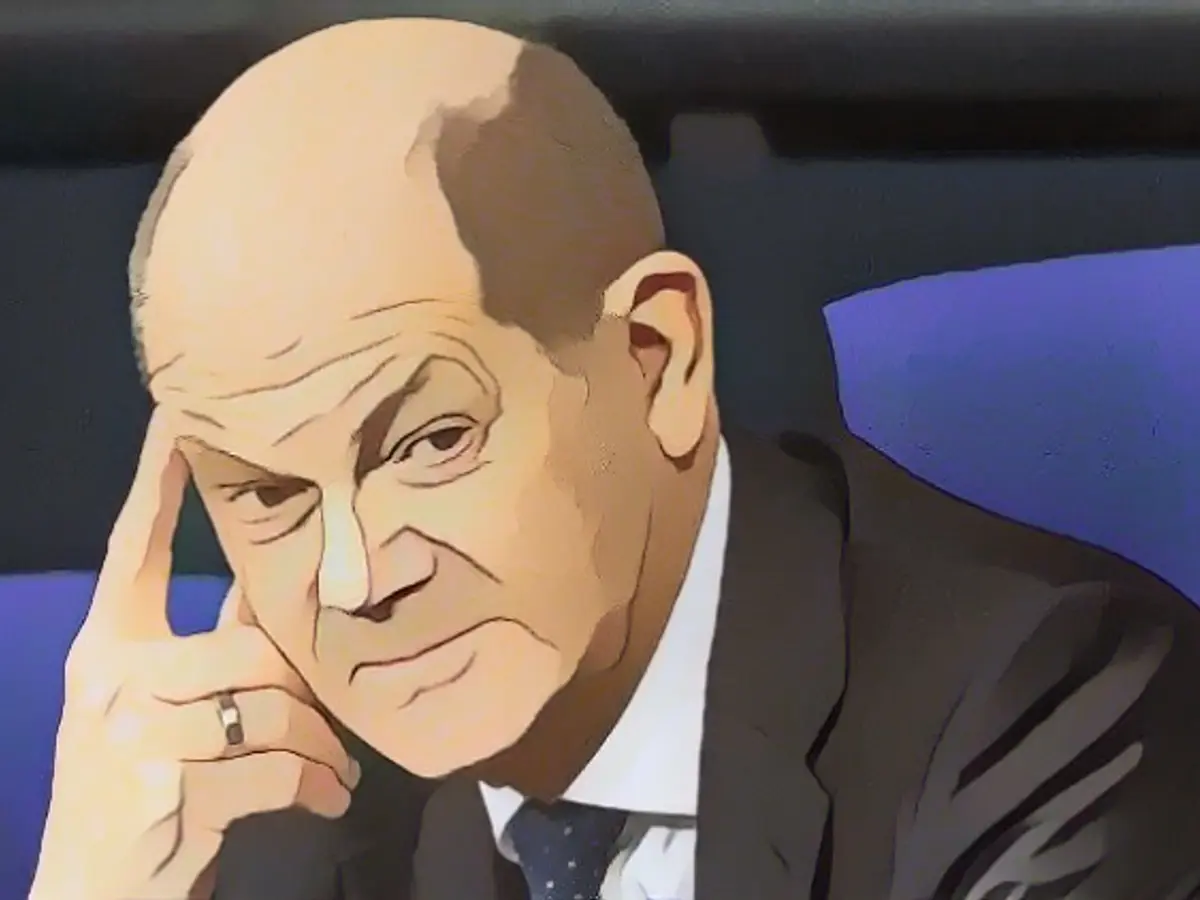Scholz does not want a vote of confidence in the Bundestag
Chancellor Scholz believes the coalition government is on the right track in terms of budgetary policy and is firmly in the saddle. Asking for a vote of confidence, as opposition leader Merz is demanding, is therefore out of the question. Instead, the head of government praised his own success. However, he is evasive on one issue.
Federal Chancellor Olaf Scholz does not currently want to call a vote of confidence in the Bundestag. He accused Friedrich Merz, leader of the CDU/CSU parliamentary group, of making a "failed macker gesture" by calling for such a vote of confidence. Merz had sharply criticized the coalition government's agreement in the dispute over the 2024 federal budget and accused Scholz of "financial policy trickery". According to Merz, it was foreseeable that the federal government would not comply with the debt brake with the 2024 budget. Scholz should also face a vote of confidence in the Bundestag in connection with the planned legislative package against unauthorized migration.
"There is no reason to do this at the moment. The federal government has a stable majority and passes its laws. Perhaps Mr Merz would like things to be different and is therefore whistling loudly in the forest. But to be honest, that's actually more - shall I say - a somewhat unsuccessful macker gesture," said Scholz on the ARD program "Farbe bekennen".
Scholz rejected the accusation of cheating on the 2024 federal budget. He also praised the compromise reached on how to save 17 billion euros in the core budget in the coming year. This is a "pretty good result, one that can also show confidence", said Scholz.
Economy to be further transformed
"We have ensured that Germany remains an efficient welfare state," said Scholz. Furthermore, there will be no increase in income and corporation tax. He also emphasized that the government would continue to provide funds for the modernization of the economy, which is necessary for Germany. This included the production of semiconductors, the production of steel using green energy and battery cell production.
The leaders of the traffic light coalition had previously presented the cornerstones for a revised draft budget. However, many details still have to be worked out in the ministries before the Bundestag and Bundesrat can deal with it. Scholz once again avoided apologizing after the ruling of the Federal Constitutional Court, which caused the current budget crisis for the traffic light government.
The new plans include a higher CO2 price for petrol and heating fuels, a tax on aviation fuel and the abolition of a billion-euro subsidy for electricity grid charges. Scholz said that a gradually increasing CO2 price would help to achieve the climate targets and finance the transformation of the economy towards climate neutrality. In addition, the government would reduce climate-damaging subsidies.
Scholz remains silent on additional burdens for families
When asked about the additional burden on the average family, the Chancellor responded evasively. He said that there were very different calculations and that relief had already been agreed in other areas, for example through higher housing benefit or higher child benefit. "There are no social cuts." The debt brake enshrined in the Basic Law will be suspended again in 2024 if a new emergency arises. However, this "does not have to happen definitively".
The savings in the federal budget are necessary because the Federal Constitutional Court had prohibited the coalition in a ruling from postponing credit authorizations from the coronavirus pandemic to other years. The judges had declared the second supplementary budget for 2021 to be incompatible with the Basic Law and therefore null and void. According to the ruling, the government was not allowed to retroactively shift 60 billion euros in credit authorizations to the Climate and Transformation Fund (KTF) to deal with the coronavirus pandemic. Scholz expects parliament to vote on the 2024 federal budget at the end of January or beginning of February 2024.
Read also:
- Year of climate records: extreme is the new normal
- Precautionary arrests show Islamist terror threat
- UN vote urges Israel to ceasefire
- SPD rules out budget resolution before the end of the year
Scholz commended the coalition government's approach to climate protection, stating that they aim to achieve their climate targets through a gradually increasing CO2 price. However, regarding the potential economic burdens on families, he remained evasive, mentioning previously agreed relief measures such as higher housing benefit and child benefit.
Olaf Scholz countered Friedrich Merz's accusations of financial policy trickery, specifically in relation to the 2024 federal budget. He highlighted the compromise reached on budget savings, which he deemed as a substantial achievement.
In his plan for a revised draft budget, Scholz proposed increases in the CO2 price for petrol and heating fuels, along with a tax on aviation fuel and the abolition of a subsidy for electricity grid charges. These measures, he argued, would help finance the transformation of the economy towards climate neutrality and promote sustainable industries like semiconductor, green steel, and battery cell production.
Source: www.ntv.de








